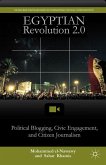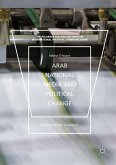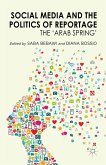This book sheds light on the growing phenomenon of cyberactivism in the Arab world, with a special focus on the Egyptian political blogosphere and its role in paving the way to democratization and socio-political change in Egypt, which culminated in Egypt's historical popular revolution.
"[The authors] bring to bear both a deep theoretical understanding and compelling qualitative research to reveal how Egyptian bloggers helped sow the seeds for Egypt's January 25 Revolution. They provide a fascinating analysis of how online media venues shifted from being an authoritarian regime's 'safety valve' to becoming sites of resistance, empowerment and mobilization for the Egyptian people. Attending carefully to the subtle interplay of online activism and 'offline' social and political conditions, the authors shed genuine light on the meaning of, and prospects for, both cyberactivism and civic engagement more generally. Their book is all the more exciting because the five influential bloggers on whom they focus four men and one woman while united in heroic criticism of the Egyptian government, nonetheless differ considerably in background, style, and ideology. This book thus exposes a variety and vibrancy in the Egyptian public sphere with which many Western readers will simply be unfamiliar." - Peter M. Shane, co-author of Connecting Democracy: Online Consultation and the Flow of Political Communication
"This important book shatters the simplistic characterizations of social media in the Arab Spring, providing a nuanced look at the vital role at the Egyptian bloggers hybrid cyber-activists/journalists who paved the way for the revolt." - Lawrence Pintak, author, The New Arab Journalist
"This important book shatters the simplistic characterizations of social media in the Arab Spring, providing a nuanced look at the vital role at the Egyptian bloggers hybrid cyber-activists/journalists who paved the way for the revolt." - Lawrence Pintak, author, The New Arab Journalist









